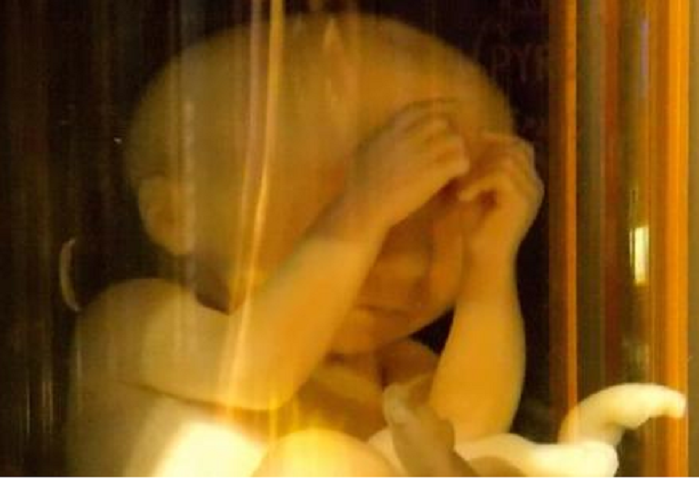The University of Pittsburgh continued to defend its gruesome experiments involving implanting aborted babies’ scalps onto rodents and other research with aborted baby body parts, citing a new investigation this week that found its research is “fully compliant” with state and federal laws.
The university commissioned the outside investigation last year after Judicial Watch and the Center for Medical Progress exposed evidence of babies potentially being born alive in abortions and other disturbing practices at the university. The evidence came from documents they obtained from the U.S. Department of Health and Human Services through a Freedom of Information Act request.
Repeatedly, the university has denied all allegations of wrong-doing. Now it is citing the findings of the new investigation to back up its unethical research practices.
According to WESA, the NPR Pittsburgh affiliate, the university paid the Washington, D.C. law firm Hyman, Phelps & McNamara to conduct the investigation.
LifeNews depends on the support of readers like you to combat the pro-abortion media. Please donate now.
In the newly released report, investigators said the university research is “fully compliant with federal and state regulatory requirements,” according to the report.
Notably, one of the investigators is a graduate of the University of Pittsburgh pharmacy school; when WESA asked the university about the conflict of interest, a spokesperson dismissed the question, saying the investigator had graduated almost 20 years ago.
According to the findings, most of the aborted baby body parts that university researchers use come from UPMC hospital system, not Planned Parenthood. The university has connections to Planned Parenthood, and some raised questions about potentially unethical dealings between the two.
Here’s more from the report:
The Hyman, Phelps & McNamara investigation found that since 2001 none of the 31 Pitt studies that used fetal tissue worked with specimens that came from Planned Parenthood of Western Pennsylvania patients. In fact, the report notes this branch of the health care nonprofit doesn’t collect fetal tissue for research purposes.
Another accusation conservative pundits put forth last year was that Pitt leveraged its access to fetal tissue to obtain federal funding for research from the National Institutes of Health. Investigators noted that, “NIH grant money is not tied to the source of human fetal tissue.”
To prevent coercion, the investigators said abortion patients are asked to donate their aborted baby’s bodies only after they make a final decision to have the abortion.
The investigation also found that abortionists do not change the abortion procedure based on the mother’s decision to donate her aborted baby’s body to medical research, according to the report.
“The process for obtaining informed consent from donors of human fetal tissue is proper,” investigators wrote.
The university defended its decision to pay for the investigation, saying it was a “proactive step to ensure that it is positioned to continue leading the way — scientifically, legally and ethically — in practicing and advancing lifesaving research.”
But many pro-life leaders and lawmakers want a fully independent investigation into the unethical and potentially illegal research practices.
One horrific experiment at the university involved scalping second-trimester aborted babies and then implanting their scalps onto rodents to study the human immune system. University of Pittsburgh researchers published the results of the study in 2020 in the journal “Scientific Reports,” as well as photos that show tufts of babies’ hair growing on the rodents.
The Center for Medical Progress and several doctors, including one who supports abortion, also pointed to documents and statements from university officials that suggest some aborted babies’ hearts still may be beating when their organs are harvested for scientific research.
Last year, David Daleiden, founder of the Center for Medical Progress, expressed doubt about the independence of the university’s investigation in an interview with The Fix.
“Tellingly, the University of Pittsburgh thinks that hiring a law firm somehow counts as an ‘independent’ review of their barbaric experiments with aborted baby body parts,” Daleiden said. “Anyone who wants a real investigation should look at the document requests nearly 100 congressional representatives made … concerning Pitt’s experiments on aborted babies.”
State and federal lawmakers, pro-life organizations and others have been calling for an investigation of the university for months ever since the Center for Medical Progress and Judicial Watch released their FOIA documents.
In August, a University of Pittsburgh spokesman called the allegations “irresponsible and false” in a statement to Fox News. He said the university and its partners comply with all laws, and the university itself does not perform abortions.
But the university has been using Americans’ tax dollars to become a “tissue hub” for aborted baby body parts for scientific research for years. According to the documents obtained by Judicial Watch and the Center for Medical Progress, the university requested $3.2 million over a five-year period in 2015, and it has received at least $2.7 million so far.
The Center for Medical Progress said the university documents and statements confirm that some aborted babies’ hearts still are beating while their kidneys are harvested for scientific research. The documents also show that the university program has racial quotas for aborted baby body parts.








